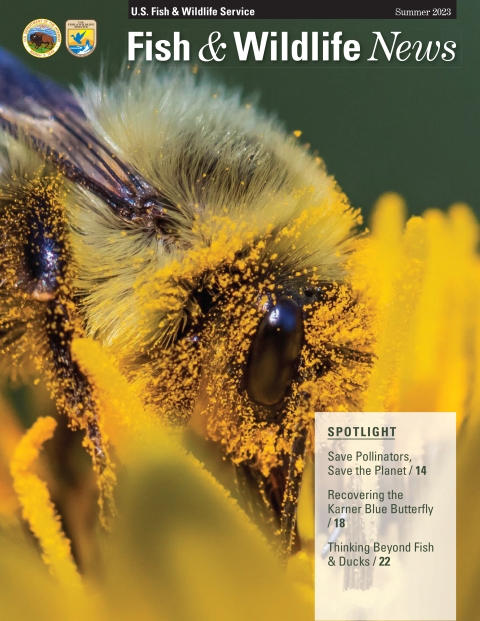Pollinators provide vital benefits to people and wildlife, but for the past 25 years, many species of bees and other pollinators have experienced large drops in numbers.
Habitat that pollinators need in order to survive is shrinking. Invasive wildlife crowds out native plants and increases disease threats. Improper use of pesticides can harm pollinators and other wildlife.
One of the biggest problems is climate change climate change
Climate change includes both global warming driven by human-induced emissions of greenhouse gases and the resulting large-scale shifts in weather patterns. Though there have been previous periods of climatic change, since the mid-20th century humans have had an unprecedented impact on Earth's climate system and caused change on a global scale.
Learn more about climate change . Flowers are blooming earlier as temperatures warm, costing some pollinators the opportunity to feed. More flooding and increasing fire seasons threaten native habitats.
Read about some of the issues and how we are fighting them:
- Service Director Martha Williams: Pollinators Need and Provide Help
- Save Pollinators, Save the Planet
- Recovering the Karner Blue Butterfly
- Thinking Beyond Fish and Ducks
- Dim Those Lights!
- Join the Buzz
- Can’t Bee-t the Heat: Climate Change Is Bad News for Bumble Bees
- Flower Flies: Pollinators in Disguise
Fish & Wildlife News is the quarterly magazine of the U.S. Fish and Wildlife Service. It is written by and about Fish and Wildlife Service employees in offices around the nation, retirees, and the public. To subscribe, send a message to Matt Trott with the word "subscribe" in the subject line.




